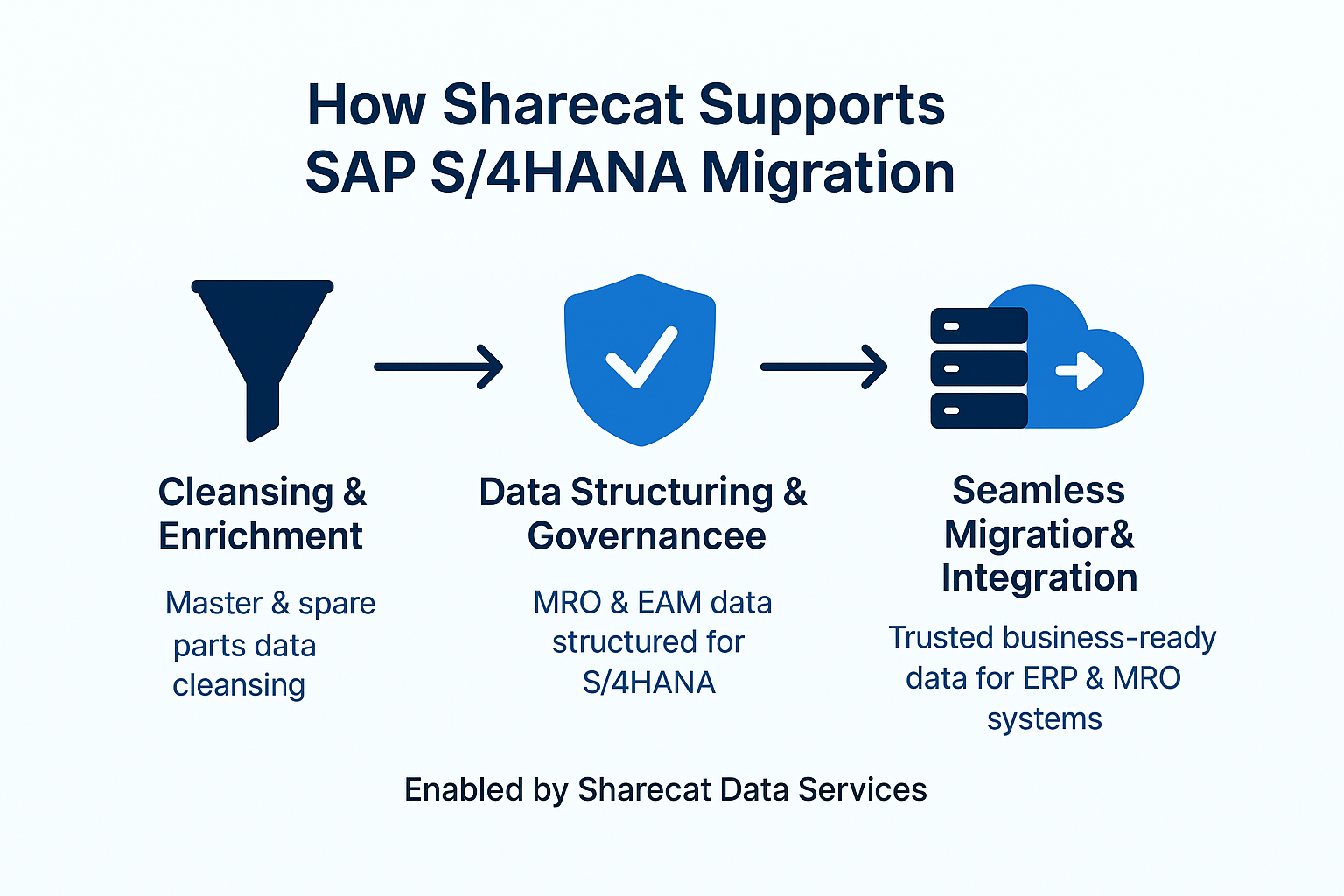SAP S/4HANA is SAP’s most advanced ERP solution, designed to replace SAP ECC. It centralizes core business functions such as finance, manufacturing, maintenance, and supply chain management on the powerful in-memory SAP HANA database.
Unlike ECC, S/4HANA enables real-time analytics, simplified data structures, and better integration with EAM (Enterprise Asset Management) and MRO systems.
Companies can deploy it on-premise, in the cloud, or as a hybrid, depending on their business needs. Combined with modern SAP Fiori applications, it provides a faster, more intuitive user experience for decision-makers.
For details about the legacy system, visit our glossary page on SAP ECC.


One of the most frequent questions asked by SAP users is how S/4HANA differs from ECC. The key difference lies in its architecture, speed, and integration capabilities. Below is a direct comparison:

Migrating from SAP ECC to SAP S/4HANA is not just a technical upgrade — it’s a data transformation journey. Without accurate, standardized, and enriched data, the migration process can lead to delays, errors, and increased costs.
Sharecat Data Services ensures a smooth transition by focusing on data quality, consistency, and compliance:
• Cleansing and enriching master and spare parts data before migration
• Aligning data with international standards like ISO 8000 and E-Class Classification
• Structuring MRO and EAM data for full S/4HANA compatibility
• Supporting long-term maintenance with trusted, business-ready data
By partnering with Sharecat, organizations minimize downtime, improve operational reliability, and unlock the full potential of SAP S/4HANA.

Integrating SAP S/4HANA with Enterprise Asset Management (EAM) and MRO systems bridges the gap between maintenance, operations, and finance.
It creates a single, unified data environment that improves asset visibility, procurement accuracy, and spare parts standardization.
Benefits of this integration include:
• Improved data accuracy and compliance
• Reduced inventory duplication and waste
• Real-time analytics for decision-making
• Streamlined maintenance planning
This connection ensures your EAM and ERP systems work together seamlessly — optimizing uptime, cost-efficiency, and data governance.